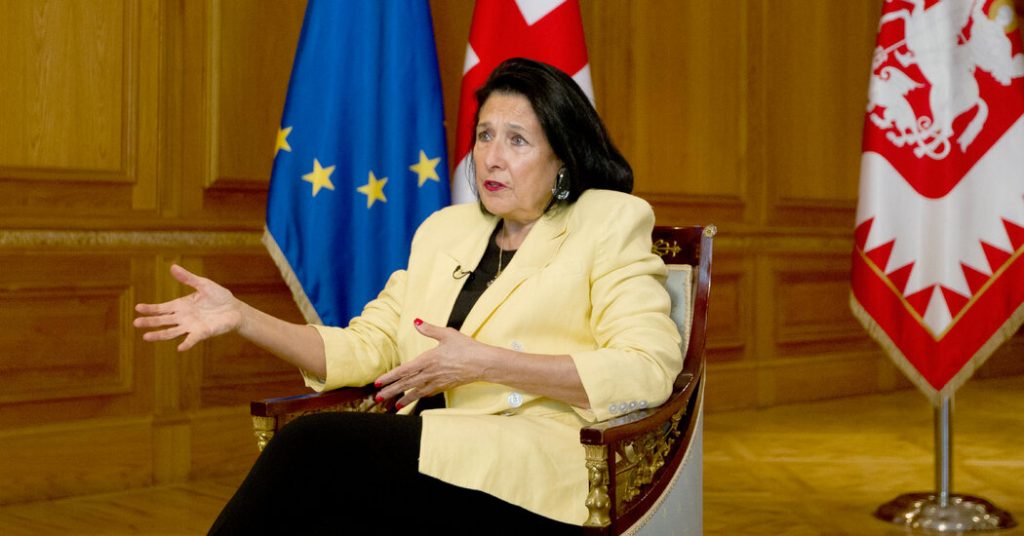President Salome Zourabichvili of Georgia has vetoed a bill on foreign influence, sparking protests and political crisis in the nation. The bill was introduced by the ruling Georgian Dream party and aims to regulate organizations receiving more than 20% of funding from foreign sources. The President’s veto is seen as symbolic but has escalated the conflict between the pro-Western opposition and the ruling party. The crisis highlights the polarization in Georgia’s political life and threatens the country’s pro-European aspirations.
Despite the veto, Georgia’s Parliament is expected to override it and pass the bill into law. This move could potentially shift Georgia’s geopolitical stance towards closer ties with Russia, rather than the West. The draft law, called “On Transparency of Foreign Influence,” aims to monitor and regulate NGOs and media outlets receiving foreign funding. Critics see it as a means to limit Western influence in the country and align Georgia’s policies more closely with Russia.
The crisis has led to widespread protests in Tbilisi, where demonstrators, including students, have taken to the streets to voice their opposition to the bill. The protesters have clashed with riot police and faced arrests, with many opposition members reporting harassment and violence. President Zourabichvili has emerged as a vocal critic of the ruling party, aligning herself with the protestors and calling for the repeal of the controversial bill.
The situation in Georgia has attracted attention from American and European officials, who have warned of sanctions and downgraded relations if the bill is enforced and protests are suppressed. Georgia, once a pro-Western nation, is now in turmoil over its future direction, torn between its constitutional commitment to the West and the potential for closer ties with Russia. The crisis underscores the fragile balance between domestic politics and international geopolitics in the region.
President Zourabichvili, who holds a ceremonial role, has taken a strong stance against the ruling party and its proposed legislation. Her background as a former French ambassador to Georgia and subsequent foreign minister has given her a platform to challenge the government’s policies. The President’s decision to veto the bill has created a rift with the ruling party, exacerbating tensions in the already deeply divided political landscape of Georgia.
The coming days will be crucial for Georgia as the Parliament is set to reconvene and potentially override the President’s veto. The outcome of this political standoff will have far-reaching implications for Georgia’s future trajectory and its relationships with Western powers and Russia. As protesters continue to voice their opposition and the government remains steadfast in its pursuit of the bill, the fate of Georgia’s pro-European aspirations hangs in the balance, opening up a new chapter in the country’s turbulent political history.


